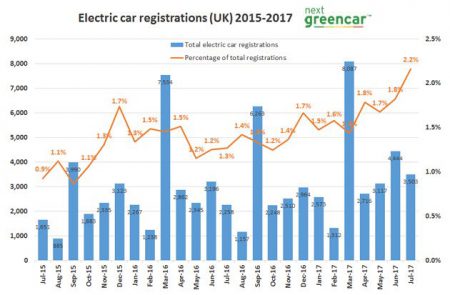Ford has become the latest vehicle manufacturer to offer a scrappage scheme in the UK, following the likes of BMW and Volkswagen (VW) in offering drivers the opportunity to save on their new vehicle by trading in their old one for scrap. With the largest fleet in the UK, this could have a significant benefit for drivers and air quality levels in the country.

However, unlike its scrappage plan in Germany, which followed the country’s government led diesel forum, for the UK market the company will take both petrol and diesel vehicles. These have to be pre-Euro 5 vehicles registered by 31 December 2009, with customers being offered £2,000 (€2,181) against a new Ford vehicle.
However, the manufacturer does not yet offer a pure electric vehicle (EV) in the country, and the scrappage scheme does not include the company’s Mondeo model, the only vehicle the company offers with a hybrid option. Furthermore, the Focus EV is expected to launch in the UK during 2018, while the scrappage deals only run until 31 December 2017, meaning drivers will simply be trading in for a new petrol or diesel.
‘Ford shares society’s concerns over air quality’,
said Andy Barratt, Chairman and MD of Ford of Britain. ‘Removing generations of the most polluting vehicles will have the most immediate positive effect on air quality, and this Ford scrappage scheme aims to do just that.
‘We don’t believe incentivising sales of new cars goes far enough and we will ensure that all trade-in vehicles are scrapped. Acting together we can take hundreds of thousands of the dirtiest cars off our roads and out of our cities.’
According to data from the Society of Motor Manufacturers and Traders (SMMT) there are around 19.3 million pre-Euro 5 vehicles on the road in the UK. Therefore, Ford believes it will be aiding the reduction of that number, which, together with other scrappage schemes from other manufacturers, could have the effect of reducing CO2 by 15 million tons per year.
Read more: Autovista Group



